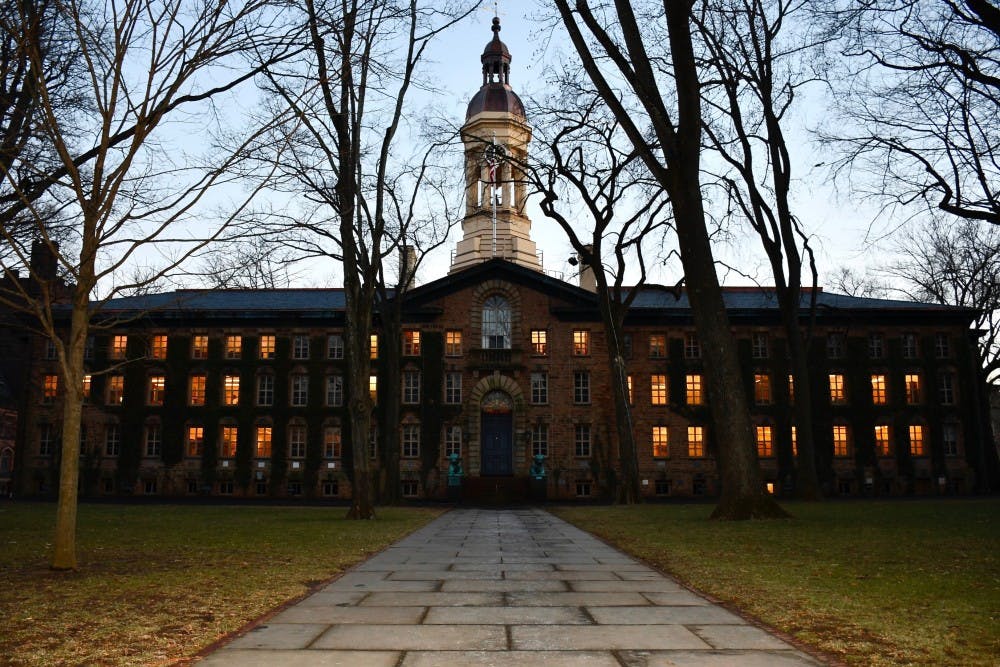Two months ago, an Undergraduate Student Government survey revealed that “Most students advocated strongly for an on-campus semester, even if being on campus would require substantial social distancing restrictions; students indicated that they would be willing to follow social distancing regulations outlined by the University in order to return to campus.”
Fast forward to July, and 50 percent of students have received what they wanted — first-years and juniors are free to return to campus, a move conditional on their signing of a social contract all of us knew would be a part of the bargain. Soon after, social media stories lit up protesting against the decision, with fellow students lamenting that Princeton had “ruined their lives.”
So, why are we now hearing objections that were silent a mere two months ago, and what occurred in those two months to see this shift from willingness to resentment?
Maybe the actual reading of the newly released social contract drove home what we would have to sacrifice. Parties are prohibited. Eating clubs are closed. Extracurriculars are severely restricted, and some are cancelled altogether. Face coverings are required indoors, and students are restricted in where they can and cannot be. Because of these restrictions, the very students who turned to emails and social media to rally for a return to campus are using the same mediums and platforms to express their resentment at the ‘prison-like’ conditions they face on their return.
What did we expect? Nothing is now as it was in March, let alone at the beginning of the year. Since that time, New Jersey and New York have transformed into epicenters of a prolonged global disaster. And since that time, the rate of U.S. COVID-19 cases has accelerated with no signs of slowing. Daily freedoms, such as going to the supermarket, traveling across cities, states, and countries, visiting friends and family, and going to work, have been taken from us for the greater good of the community. Society has been brought to its knees, health systems have been pushed beyond capacity, and social structures have been stripped bare.
There is no doubt that the University is a place of privilege where we can access education and experiences far outstripping the majority of the country, if not the world. We are lucky, but that does not mean that we are entitled. Rather, it means we have a responsibility to use our opportunities progressively, and sometimes progress means doing without.
Perhaps our misunderstanding of what we thought we wanted was born out of the memory we took with us from those final weeks on campus, when most students, aside from those in the Class of 2020, departed with an unwavering certainty that they would be able to return in six months to the life we were so hastily forced to abandon.
But if there is one thing we have learned in the past few months, it is that nothing is certain and the resentment towards the social contract reveals a blaring misunderstanding of the unique obligations placed on us during this time. We may not be able to celebrate like we did, or live in close proximity, or compete, or participate in the groups we have come to love. We may have to keep logging into Zoom longer than expected. But we can still see each other. We can still learn together. In a time where sacrifice is essential, it is important to acknowledge and accept the compromises, and appreciate and enjoy what remains.
We are here to get a world-class education, to make lifelong friends, to contribute to campus, and to use what we have learned to make a positive impact. And we all face a common challenge in this pandemic, where one person’s actions immediately impact those of another. Let us use our education and our potential to make an impact to facilitate healing for our community.
Like any grieving process, we must reach the fifth and final stage of that grief. Having experienced the denial and isolation, the anger, the bargaining, and the depression that has come from the long six months apart, acceptance should be next on the agenda.
If this pandemic has shown us anything, it is that the life we used to enjoy was a privilege, not a right. Princeton will no doubt one day go back to the way it was, but until then, we have to be grateful for the small things and stop lamenting what we had, so that sooner rather than later, we can have it back again.
Claudia Frykberg is a rising junior in the English department. She can be reached at frykberg@princeton.edu.









